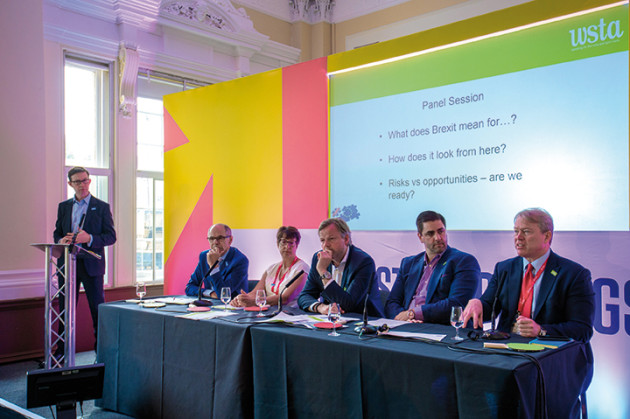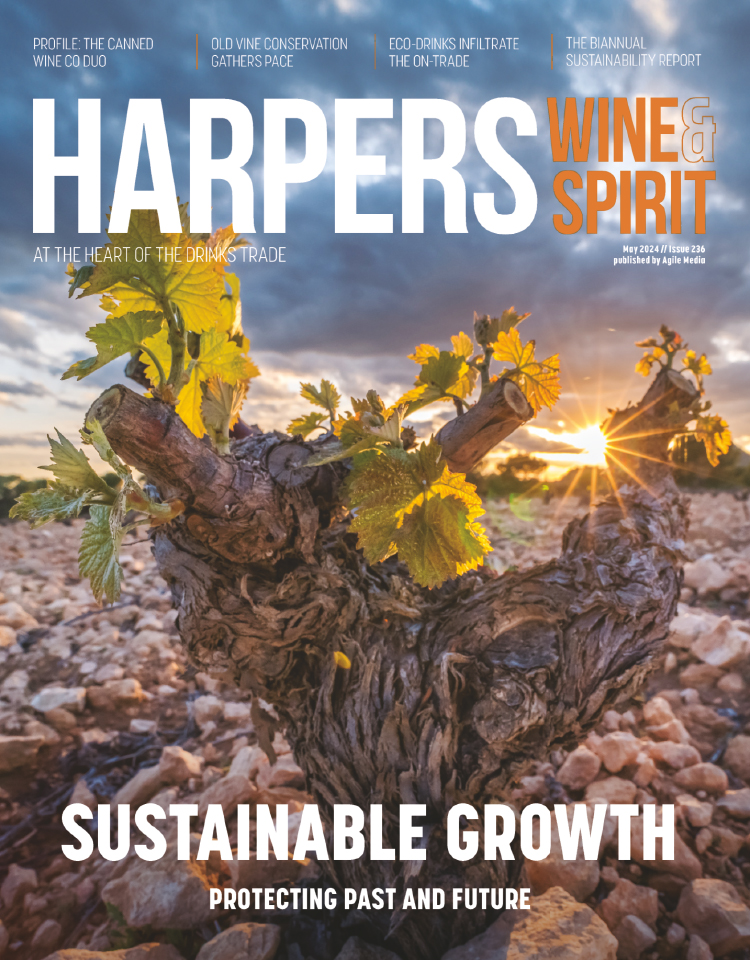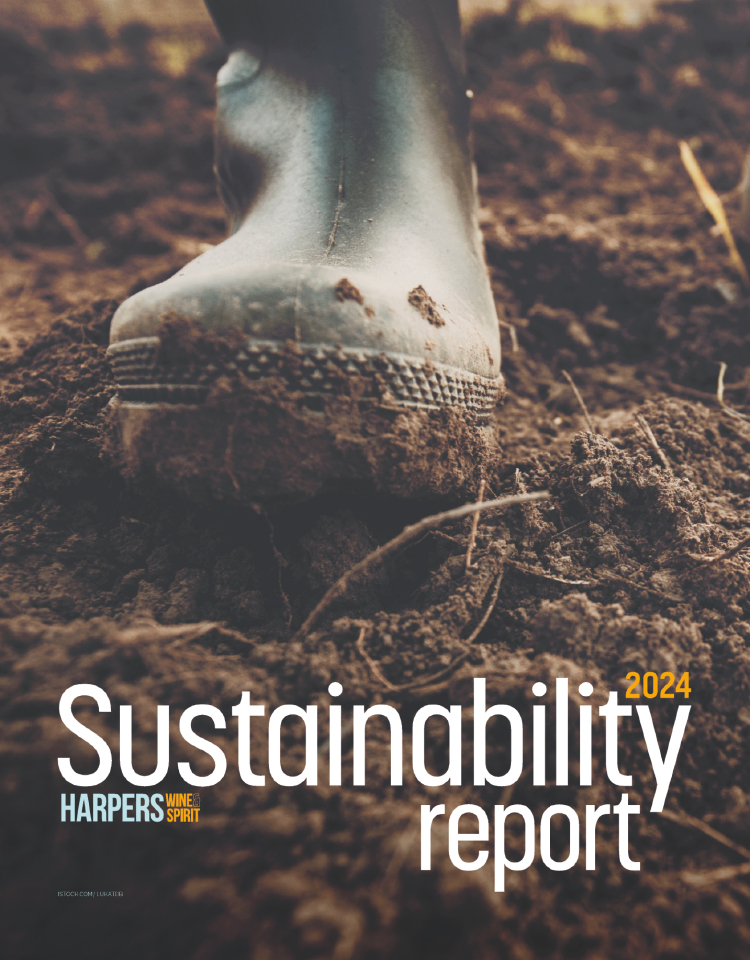
Industry leaders plan for multiple scenarios as uncertainty continues to Brexit D-Day
With Brexit D-Day less than a year away, this year’s Wine and Spirit Trade Association-hosted briefing at the London Wine Fair (LWF) promised a glimpse at how the trade is preparing for life after Brexit.
Thinking about “after Brexit” is proving difficult however, with so much still to be negotiated before March 19, 2019.
This includes the nature of the Irish border and also the UK customs border with Europe – two issues which could not only pose problems for the movement of goods, but are causing equal disruption in parliament and holding up decision-making.
Uncertainty – along with currency – came up time and again as one of the main negative factors affecting day-to-day business, with Jean Marie Barillère, president of the Union des Maisons de Champagne, going so far as to say that even a badly negotiated deal would be preferable to no deal at all.
The result is that businesses are having to work that little bit harder to plan for unseen scenarios, including diversifying their product mixes, exploring new markets abroad and finding ways of keeping the premiumisation momentum going.
This includes Sussex’s Bolney Wine Estate, which has suffered from market volatility and a nervous banking sector over the past few years, making it “harder and harder” to find investment.
Currency has also been a problem.
According to Sam Linter, MD and head winemaker, the estate’s application to hedge prior to the referendum vote was denied, leaving them vulnerable against a weakening pound and worse off when buying equipment from France and Germany, which have also gone up overnight.
As a result, Bolney has followed the lead of many UK producers into artisanal spirits, liqueurs and aperitifs, announcing the launch of a new vermouth at the LWF, as well as keeping a keen eye on the economy leading up to March next year.
She said: “In the economic downturn a few years ago, people were spending at lower end and not up-spending. If there is a further weakening of the pound, this will have an impact on English wine, which is at the premium end of the market. So we’re looking at exporting and other products and give us diversification into areas where people are spending money. I personally would like to sell all our wine in the UK. There’s such a small amount produced, but export is what we’re focused on at the moment.”
Premium position
Premiumisation and how it is being impacted by Brexit also came up several times throughout the briefing.
“Volume for wine is flat but value is up worldwide”, said Paul Sorrentino, VP/GM Europe, Middle East & Africa at E&J Gallo, which has just released 13 new premium wines into the UK with the goal of keeping up with this trend.
At the same time however, Sorrentino is wary of a slow down, as even cheap wine is a luxury in times of economic stress.
Troy Christensen at bar and restaurant supplier Enotria&Coe went one step further, claiming that long-standing cracks in the industry are widening under the magnifying glass of Brexit.
Starting with the financial crisis in 2008 and continuing with the rise of online shopping and more recently the fall of Conviviality, he said Brexit’s main impact has been to exacerbate negative factors already affecting the trade, leading to a shift that is going to be “seismic” over the next five to ten years.
“Look at Prezzo. Carluccio and Jaime’s [Italian]. When was the last time we saw this many restaurants go into administration? Conviviality bravely consolidated Mathew Clark and Bibendum, and followed that path using power and scale to pick up price savings and follow the Amazon model. You can’t do that when you’re making 2% margin,” he said.
While “value engineering” and trading down has hurt wine, he argued, Brexit has opened up opportunities for the on-trade to confront some of the issues that have been percolating for some time.
“Wine needs investment to grow. Price competition, training, public relations – these are the value added things that get our customers to sell to consumers. They are also the things that go out the door when you’re focused on price,” he said.
Brexit-exacerbated staffing issues are also adding further challenges – everywhere from hospitality to vineyards.
Linter drew attention to “vital” agricultural workers, usually from Eastern Europe, who help to bolster the number of Bolney workers tenfold during key points of the year.
“For pruning, bud-rubbing and harvest especially, there’s a window of opportunity where things need to be done very quickly and we need between 30 and 40 people,” she said. “You cannot source that in UK. There isn’t the skills or the number of people available and we don’t have a solution. It’s worrying.”
Border debate
Leendert Vis, chief innovation officer at JF Hillebrand Group picked up the thread of border controls, offering an optimistic view on how importers and exporters will deal with the changes.
He echoed Barillère and Linter that currency has had “by far biggest impact”.
Meanwhile, on the subject of whether or not the UK ends up with a hard or soft border, he compared the worst-case scenario to an Australian import coming into the UK.
“A big part of imports already coming from outside the EU and the industry knows how to deal with it. Most wine comes via a rail or sea connection, so there is a stop anyway,” he said.
The best outcome for the trade, Vis argued, would be a continuation of the Excise Movement and Control System (EMCS) – an existing EU-wide IT system that records duty suspended movements of excise goods electronically, meaning a swift and frictionless entry point for wine at the border.
In case this is replaced, and in case of border queues arising from the implementation of the Customs Decision System (CDS) – a new government IT project which is due to begin testing this year – Vis advises keeping key products backed up towards the implementation of Brexit.
But “whatever the outcome, it will work,” he said.
This optimism was echoed at times throughout the debate, with fear of another economic downturn balanced by the hope that everyone on both sides of the Channel are rooting for minimum disruption to trade.
Putting on a united front with Barillère and other counterparts in Europe therefore continues to be a priority for the WSTA.
This was stressed particularly by its chief executive Miles Beale, a former civil servant whose faith in government seems to be even more on the wane.
“Go away, leave us alone and let us get on with it,” was his request to his former colleagues. “Trade is mutually beneficial – there should be no arguing with that. It only becomes an issue if politics gets in the way.”
Keywords:
- wine
- UK
- Brexit
- LWF
- currency
- day
- Europe
- MD
- Spending
- Sam Linter
- march
- problem
- linter
- new markets
- premiumisation
- new markets abroad
- VP
- GM






